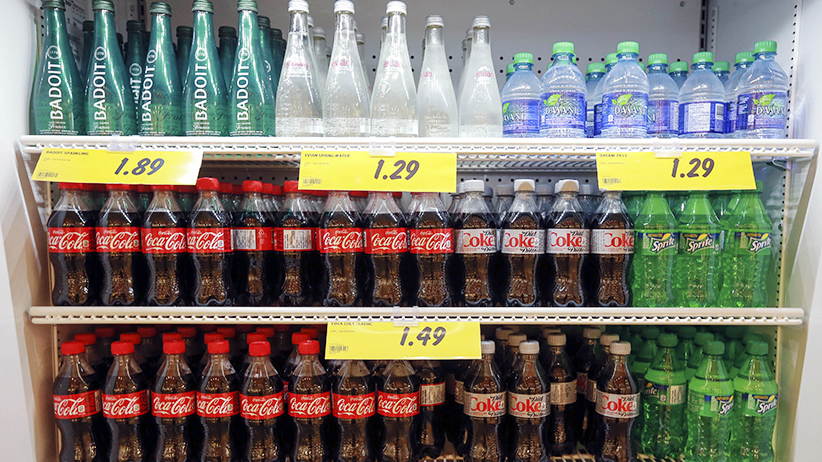It’s not Ottawa’s job to tell us how much we should weigh
Editorial: Senate should go back to worrying about expense accounts and residency rules
Share

Eager to prove it’s up on all the current trends, last week Canada’s Senate jumped on the soda tax bandwagon. “We can’t sugar-coat it any longer. There is an obesity crisis in Canada and sugar is a big part of that problem,” said Conservative Sen. Kelvin Ogilvie. Unfortunately, the report itself is as corny and cringe-worthy as the senator’s opening line. Canadians would be better off if the Senate went back to worrying about expense accounts and residency rules and left us alone to make decisions on how to live our lives.
Given the federal Liberal government’s commitment to “evidence-based policy” during last year’s election, there’s ample reason to dismiss the Senate obesity report out of hand for its evidentiary lapses and sloppy logic. It begins, for example, with the observation that immediate government action is necessary because “almost two-thirds of Canadian adults are now either overweight or obese.” The senators thus commit the deliberate statistical misdirection common to all obesity crisis-mongers: lumping overweight and obese Canadians into a single category of terminal tubbiness. Being slightly overweight is not a threat to your life.
Ample evidence proves, in fact, that individuals considered “overweight” by the standard body mass index live longer than anyone else. “As compared to those in their normal weight category, overweight individuals had a lower risk of mortality,” concludes a 2010 Canadian study in the academic journal Obesity. Carrying a few extra fleshy pounds actually offers a “protective effect” unavailable to slimmer folk. Only those considered morbidly obese (and who comprise less than 10 per cent of the population) face any obvious health risks due to weight.
Having grossly overstated the problem, the senators then move on to provide mistaken and misguided solutions.
The overarching assumption is that being overweight or obese is not the result of individual choices but a condition brought on by deceptive corporations, and which therefore requires government action to correct. This is a complete fiction. After decades of being told what to eat and what to avoid—and watching this advice reverse dramatically from year to year—Canadians have simply tuned out most government food advice. There is value in standardized nutrition labels and other passive forms of dietary information, but only to the extent this allows individuals to make their own decisions on what to eat.
Related reading: Death by sugar (special report)
As for the specific policy recommendation that Canada needs a soda tax to limit consumption of legal and refreshing beverages, this is another example of a policy satisfying a political, rather than public, need. As with bans on plastic water bottles and shopping bags, a soda tax offers politicians the appearance of taking action while doing demonstrably nothing about the underlying complaint.
There is little doubt a tax on soft drinks will reduce their consumption. But will raising the price of pop cause Canadians to consume fewer total calories and lose weight? (Even for that small minority who face actual health risks due to their weight.) Real world evidence suggests taxes of this sort simply cause people to seek out other, cheaper forms of satiation. According to research in the Journal of Public Economics, U.S. experience with soda taxes at the state level reveals “there is no statistically significant impact of the soft drink tax rate on total calories . . . any reduction in soft drink consumption has been offset by the consumption of other calories.” The complexity of individual choice repeatedly foils ham-handed government efforts at dictating what people should eat or drink. If such a federal soda tax were to appear, its main impact would be as a tool to boost government revenue. And we have plenty of those already.
Graphic: Obesity rates on the rise in Canada
Beyond parroting the complaints of various organizations long identified with soda tax promotion, the report offers very little that is defensible on the basis of critical analysis or independent research. Sugar consumption is identified as a major problem, but the report calls for a tax on diet soda as well. Ottawa is urged to promote “whole foods,” but 100 per cent fruit juice is disparaged as “a soft drink without the bubbles.” Other dramatic but ultimately pointless suggestions include a total ban on children’s food advertising and new government subsidies to make healthy food cheaper.
If the report had focused its efforts on health promotion rather than government-mandated weight control, it would have spent far more time on the sensible observation that Canadians—especially children—ought to be more active. A few of the report’s recommendations touch on this topic, but the main responsibility here lies with the provinces, which have dramatically reduced school gym time and worked tirelessly to eliminate rambunctious playground activities. A study of Nova Scotia schools in the Canadian Medical Association Journal, for example, dismissed any connection between soft drink consumption and childhood weight gain but declared “the association between obesity levels and frequency of physical education classes was striking.”
As much as the Senate would like to prove itself useful, it’s not Ottawa’s job to tell us what to eat or how much we should weigh.